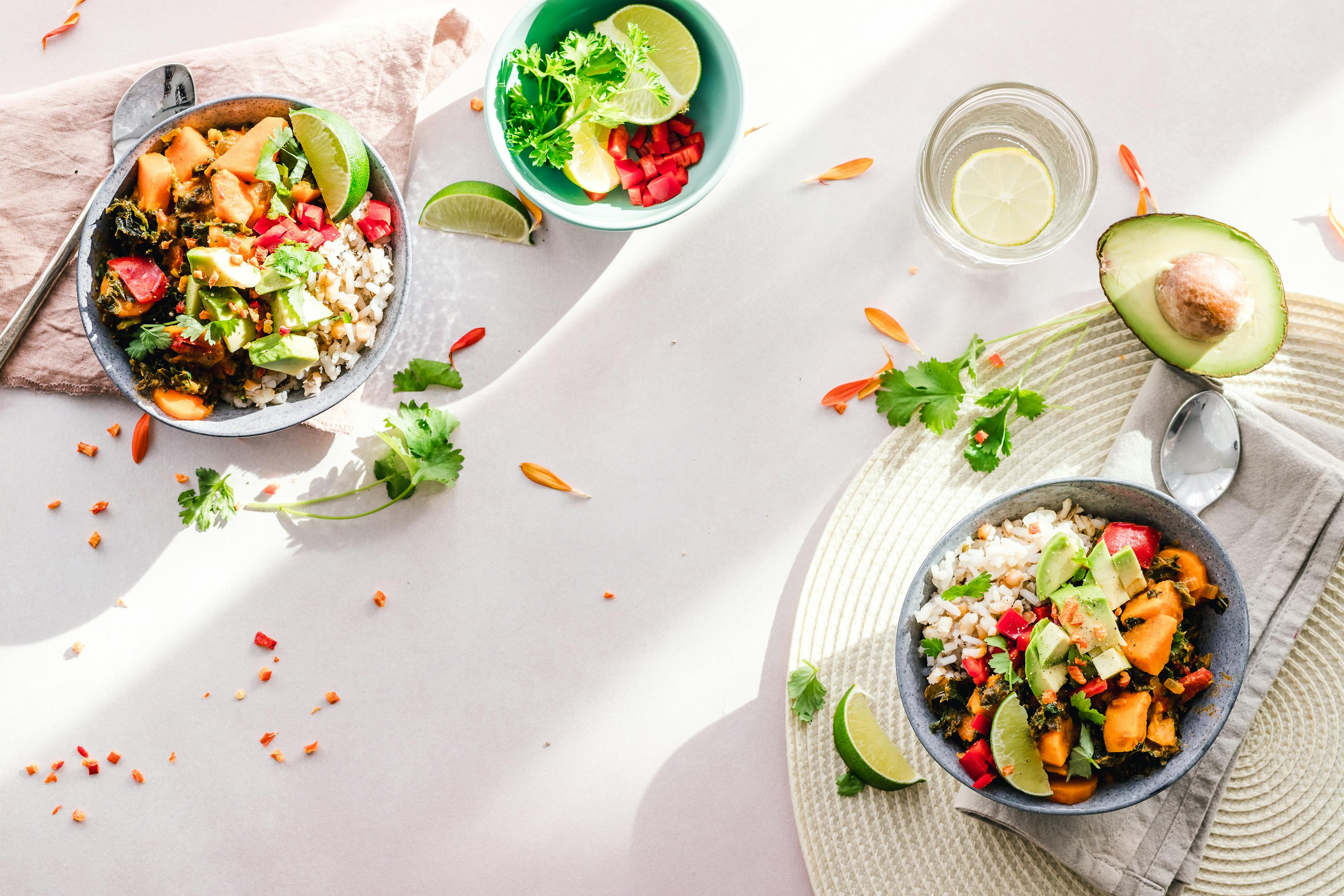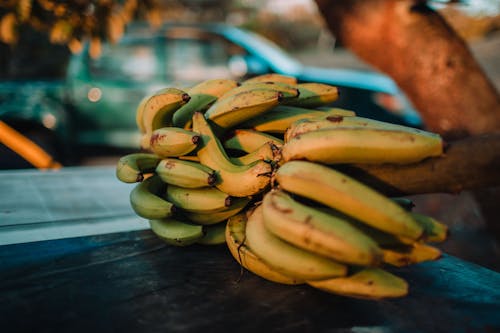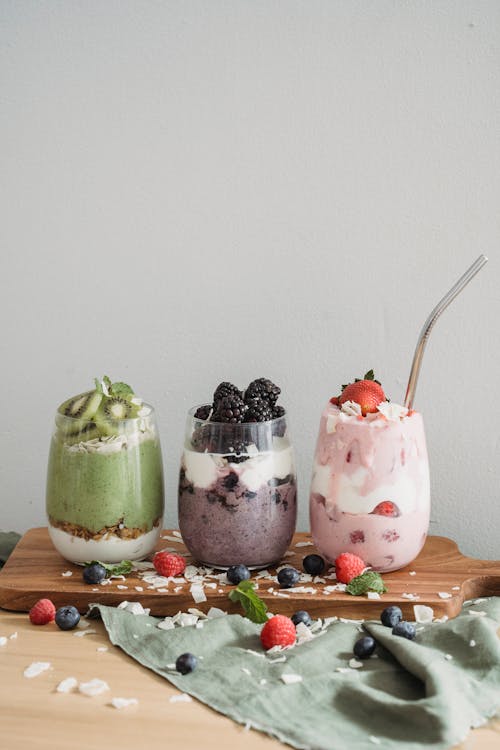The function and balance of bacteria in the various regions of the gastrointestinal tract is referred to as “gut health.” Organs like the esophagus, stomach, and intestines should all operate together in the ideal situation to allow us to eat and digest food without pain.

Importance of Gut health
In the gut, all food is broken down to a simple form that may enter the bloodstream and be given as nutrients throughout our bodies. This is only possible if your digestive system is in good shape. Infectious agents such as bacteria, viruses, and fungi are fended off by good bacteria and immune cells in a healthy gut. A healthy gut communicates with the brain through nerves and hormones, which aids in the maintenance of overall health and well-being.
Foods for Gut Health

A rising body of evidence suggests that your gut plays a critical role in your health and well-being. The beneficial bacteria in your gut help keep you healthy by creating vitamins, strengthening your immune system, and fending off bad bacteria, in addition to assisting with digestion. In fact, your gut contains more than 70% of your immune system and it is a matter to show a great concern on to maintain your gut health with proper food intakes and diet and here are such important foods which play a vital role in maintaining the health of your guts
Also Read : 8 Ideas for a Quick and Healthy Meal
- High-Fiber Foods Like Beans, Oats and Fruits

Fiber is a type of carbohydrate found in plant-based foods, and it’s categorized as soluble or insoluble.
Soluble fiber absorbs water and forms a gel that’s consumed by gut bacteria. Meanwhile, insoluble fiber passes through your digestive tract largely intact and helps provide bulk to your stool. This makes food pass more quickly through the GI tract, thus promoting regular bowel movements.
Both types of fiber help with gut health by assisting with digestion and preventing constipation. Eating high-fiber foods also helps protect you from gaining excess weight and developing chronic conditions, such as heart disease, type 2 diabetes, high blood pressure and some kinds of cancer.
Good sources of fiber include:
- Beans, dried peas and lentils
- Bran (oat and wheat)
- Dried fruits, such as prunes and raisins
- Foods made with whole grains, such as whole-grain bread, whole-grain cereal and whole-grain pasta
- Whole grains, such as barley, quinoa, bulgur and brown rice
- Fresh fruits, especially apples with skin, pears with skin, oranges, blueberries, raspberries, blackberries and strawberries
- Nuts
- Seeds
- Vegetables, especially artichokes, broccoli, green peas, winter squash, and white potatoes and sweet potatoes with skin
- Probiotic Foods Like Kimchi, Kombucha and Kefir

Probiotic foods contain living microorganisms like the health-promoting microbes found in your gut. Eating probiotic foods can help boost your body’s population of beneficial bacteria.
Common bacteria groups found in probiotic foods include Lactobacillus and Bifidobacterium (abbreviated as “B.” on food labels). Probiotic foods are made by adding microbes to food and/or allowing a process known as fermentation to take place.
Examples of probiotic foods include:
- Fermented soy foods, such as tempeh, miso and natto
- Kefir (fermented milk)
- Kimchi (fermented vegetables)
- Kombucha (a fermented tea drink)
- Sauerkraut (fermented cabbage)
- Yogurt, both dairy and non-dairy
When choosing probiotic foods, check labels for live, active cultures, which indicates the bacteria in the foods are still living. Living microbes are beneficial because they join the community of living microbes already in your gut.
Over-the-counter dietary supplements with probiotics are also available. However, there is conflicting evidence about their advantages, and the American Gastroenterological Association (AGA) does not advocate probiotic supplements for most digestive disorders. If you decide to take probiotic supplements, the AGA recommends doing so under the supervision of a doctor.
- Prebiotic Foods Like Asparagus, Bananas and Garlic

It’s not enough to eat plenty of probiotic-rich foods—you also have to eat foods that help keep these health-promoting microorganisms alive.
That’s where certain types of soluble fiber called prebiotics come in. Think of them as nutrient-dense food for your healthy gut microbes; when you eat prebiotic foods, you effectively feed the good bacteria that keeps your gut in balance.
Prebiotic foods contain compounds, such as fructooligosaccharides, inulin and galactooligosaccharides, which are types of soluble dietary fiber. “Prebiotics act as fuel for specific bacteria in the gut, thus having the ability to promote the creation of more good bacteria,” says Romano.
Good prebiotic foods include:
- Asparagus
- Bananas
- Chicory
- Garlic
- Jerusalem artichokes
- Leeks
- Oats
- Onions
- Soybeans
- Synbiotic Foods Like Yogurt Paired With Blueberries
Synbiotic foods combine prebiotics and probiotics into a single, uber-healthy gut microbe-supporting meal. These foods provide the pros of prebiotics and probiotics at once, supporting existing gut bacteria and delivering additional living cultures to your gut.

Some examples of synbiotic foods include:
- A banana smoothie made with kefir or yogurt
- Stir-fry made with tempeh, asparagus, garlic and leeks
- Yogurt with blueberries
To make these foods even better for your gut, add high-fiber ingredients, such as whole grains, nuts, seeds, vegetables, fruits or legumes.
- Anti-Inflammatory Foods Like Fatty Fish, Flax Seeds and Walnuts

Inflammation occurs when your body releases white blood cells and other compounds to protect you from infection. This reaction benefits you when you actually have an infection, but sometimes your body goes into a type of inflammatory overdrive even when no infection exists, dispersing inflammatory chemicals such as cytokines when you don’t need them. This process can contribute to or worsen gastrointestinal conditions, including irritable bowel syndrome, ulcerative colitis and Crohn’s disease.
Anti-inflammatory foods contain nutrients, such as vitamins, minerals and omega-3 fatty acids, that can help cool down inflammation. “These play a role in the natural antioxidant and anti-inflammatory pathways of the body, which may also promote the health of the gut,” Romano says.
Helpful anti-inflammatory foods include:
- Fatty fish, such as salmon, sardines and anchovies
- Flax seeds
- Fruits, such as berries and grapes
- Vegetables, such as broccoli, peppers and tomatoes
- Walnuts
Worst and avoidable foods for Gut Health
Animal-based foods, such as meat, dairy, and eggs, have numerous health benefits. They’re high in protein as well as other nutrients like choline. People who consume a diet high in animal protein, on the other hand, may experience negative alterations in their gut microbiome.
According to ResearchTrusted Source, those who eat a lot of protein, especially animal protein, have a higher risk of developing inflammatory bowel disease (IBD), a chronic condition that could indicate poor gut health.
The gut bacteria of children in a remote area of Burkina Faso, Africa, were compared to the gut flora of Italian children in a 2010 study Source.
Tips to maintain and keep you gut healthy

- Physical activity helps to move your colon, resulting in more regular bowel movements. Exercise can also aid in the management of irritable bowel syndrome symptoms.
- To avoid overburdening the GI tract, eat smaller, more frequent meals.
- Stress can have a negative impact on your gut health. Stress and anxiety can be reduced by yoga, meditation, therapy, or simply journaling.
- Chew your food thoroughly – it can ease the digestive process.
- Eat smaller, more frequent meals to avoid overwhelming the GI tract.
Further Readings :




